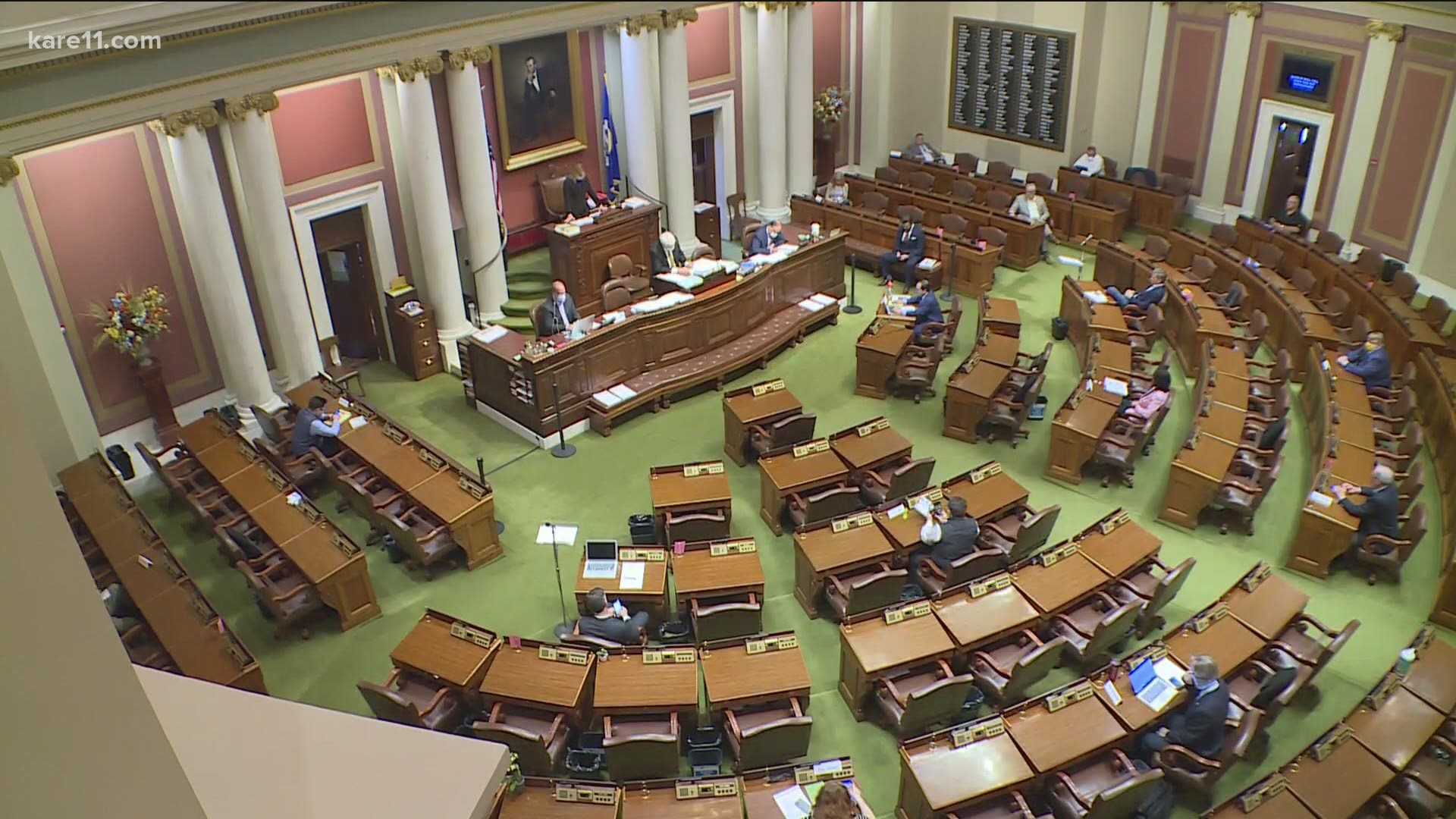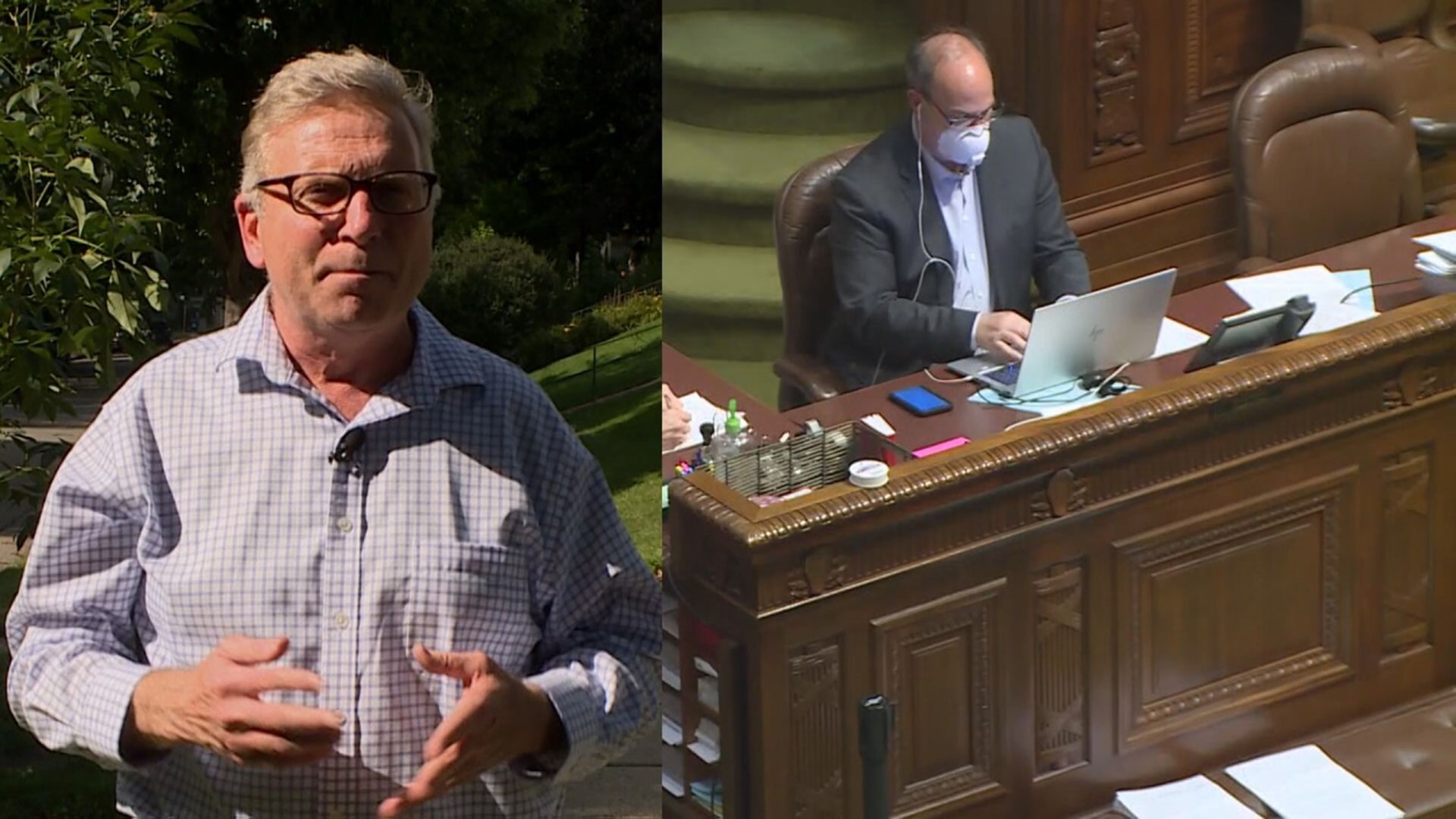ST PAUL, Minn. — Governor Tim Walz Monday extended Minnesota's peacetime emergency to Nov. 12, citing the ongoing need to respond quickly to issues that arise as a result of the coronavirus pandemic.
In a political ritual that has now become familiar, Gov. Walz then invited lawmakers back to the State Capitol for a special session so they could weigh in on the idea with the option of stripping his special emergency powers.
Once again, we saw a split decision from the legislature. The GOP-controlled Senate approved a resolution rescinding the emergency declaration, which would have the effect of removing his powers.
The DFL-controlled House voted down a resolution to waive normal rules and allow such a resolution to be taken up on the same day it was introduced, but it has the same effect as letting Walz keep his powers.
Capitol Republicans argued COVID-19 is no longer enough of a public emergency to warrant granting the governor the power to create emergency orders affecting businesses, schools and gatherings without waiting for the legislature's permission.
The governor has argued, and most Democrats agree, a divided legislature can't respond quickly enough to some of the issues that could arise if the next coronavirus peak is more severe than the first one. Democrats say they worry if Walz gives up his powers the state's COVID response would be controlled by Republicans who've fought against masks and limits on gatherings.
House Majority Leader Ryan Winkler, a Golden Valley Democrat, noted that the state's top two Republicans -- Senate Majority Leader Paul Gazelka and House Minority Leader Kurt Daudt -- were both away from the Capitol Monday in self-imposed quarantines because they'd spent time with President Trump at MSP Airport Sept. 30. It was revealed the next day that the President had tested positive for coronavirus.
"What it would mean is that every single emergency order related to COVID-19 would cease and have no legal effect whatsoever," Rep. Winkler warned his colleagues.
"I think it would be a mistake to hand over the Minnesota response to COVID-19 to Republican legislators in the Senate who have consistently minimized the seriousness of COVID-19."
The battle lines in this debate are familiar, but there was an added wrinkle Monday. Rep. Mary Franson, an Alexandria Republican, took her mask off turning her floor speech and left it off for 10 minutes even after being offered a fresh mask by House Speaker Melissa Hortman.
Eventually Rep. Winkler insisted that Hortman enforce the current mask rule in the House Chamber. As Hortman began to make that formal request, Franson put the mask back on and continued her speech against the emergency orders.
Still an emergency?
Republicans asserted the types of emergencies envisioned in Minnesota law are natural disasters with more eminent harm with little to no advanced warning, and that coronavirus no longer fits that description.
"Are we dealing with tornadoes or hurricanes or natural disasters or fires that will eliminate people’s lives in a matter of minutes? We’re not," Sen. Scott Jensen, a Chaska Republican, told his colleagues.
"We have challenges. But the emergency that, if you will, equates to the need for peacetime powers? That’s not with us today."
Sen. Jensen, who is also a physician, revealed that he already had COVID but wasn't aware of it at the time. It was discovered in an analysis of his blood.
"We will have humoral immunity which is the kind of immunity I am fortunate enough to possess, so when I had COVID-19 seven weeks ago unbeknownst to me my body turned out anti-bodies."
This is the fifth special session since the regular session ended in late May, but the governor's current reading of statutes has led him to call a special session each time he extends the emergency.
So, in a way, the legislative divide over Walz's powers is a re-run. They've managed to do a few other things in those sessions, including passing a package of police reforms in July. And the Senate used the special sessions in August and September to fire members of the governor's cabinet, with confirmation votes.


